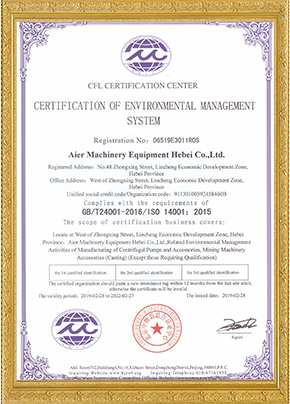Okt . 22, 2024 07:13 Back to list
Manufacturer of High-Performance Slurry Pump Impellers in China with Premium Material Options
Understanding Slurry Pump Impeller Materials in China A Comprehensive Overview
When it comes to industries that handle slurries—mixtures of solids and liquids—efficient pumping solutions are crucial. Slurry pumps are specifically designed to transport these thick, abrasive mixtures without losing performance. An essential component of any slurry pump is the impeller, which plays a vital role in determining the pump's efficiency and durability. In China, the manufacturing of slurry pump impellers has gained significant attention due to the country's robust industrial landscape and technological advancements.
The Importance of Impeller Material
The material of the impeller in a slurry pump is critical as it directly influences the pump's performance, lifespan, and maintenance requirements. Slurry pumps operate under tough conditions, including high abrasion, corrosive environments, and extreme pressures. Therefore, selecting the right material is essential for ensuring operational efficiency and reducing downtime.
Common materials used in manufacturing slurry pump impellers include
1. High Chromium Alloys Known for their excellent wear resistance, high chromium alloys are commonly used for impellers subjected to abrasive slurries. These materials can withstand the harsh conditions associated with handling abrasive particles, making them ideal for mining and mineral processing applications.
2. Rubber Linings In applications where corrosive slurries are present, rubber-lined impellers can offer significant advantages. The elasticity of rubber helps absorb shocks and impacts from particles in the slurry, extending the life of the pump while also providing resistance to corrosion.
3. Stainless Steel For applications that involve both abrasion and corrosion, stainless steel impellers are often utilized. They offer a good balance between strength and resistance to chemical erosion, making them suitable for a variety of industries, including chemical processing and wastewater treatment.
4. Ceramic Materials In the most extreme conditions, where both high abrasion and corrosive agents are present, ceramic materials are becoming more popular. They provide exceptional wear resistance and can withstand high temperatures, but they are also more brittle and can be expensive.
china slurry pump impeller material manufacturer

The Role of Manufacturers
China has positioned itself as a leading manufacturer of slurry pump impellers, leveraging its industrial resources and technological prowess. Companies in China focus on developing advanced manufacturing techniques and materials to enhance the performance of slurry pumps.
Manufacturers invest in research and development to improve the quality of their products continually. This commitment to innovation enables them to produce impellers that meet the specific requirements of different industries, from mining and construction to wastewater management and agriculture.
Quality Control and Standards
One of the challenges faced by manufacturers in China is ensuring the quality and consistency of their slurry pump impellers. The market is flooded with various suppliers, and buyers must exercise caution when selecting a manufacturer. Reputable manufacturers adhere to strict quality control processes and conform to international standards, ensuring that their products can withstand real-world applications.
Additionally, many manufacturers in China have acquired certifications such as ISO 9001, which signifies that they meet established quality management principles. This adds an extra layer of assurance for customers looking for reliable slurry pump impellers.
Conclusion
In the ever-evolving landscape of industrial pumping solutions, the importance of selecting the right slurry pump impeller material cannot be overstated. Chinese manufacturers are at the forefront of this sector, offering a range of materials designed to address the unique challenges posed by abrasive and corrosive slurries. By focusing on research, innovation, and quality control, these manufacturers provide essential components that contribute to improved operational efficiency in various industries. As demand for efficient slurry handling continues to rise, the role of quality impeller materials will remain critical in ensuring sustainable industrial practices.
-
Wholesale Slurry Pump Closed Impeller Supplier High Efficiency China Slurry Pump Closed Impeller
NewsJul.06,2025
-
High Quality Warman Slurry Pump Drawings Supplier & Factory Reliable Customization
NewsJul.06,2025
-
China SP Slurry Pump Supplier – Vertical Sump Pump Rubber Lined Manufacturer & Factory
NewsJul.05,2025
-
High Quality Submersible Slurry Pump with Agitator Manufacturer & Factory Reliable Submersible Pump Solutions
NewsJul.05,2025
-
Cheap Dredge Pump for Sale – China Cheap Submersible Pump for Wastewater Supplier
NewsJul.05,2025
-
Wholesale Casting Dredge Pump Part - High Quality China Manufacturers & Suppliers
NewsJul.04,2025
